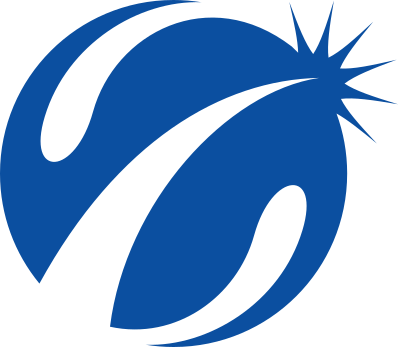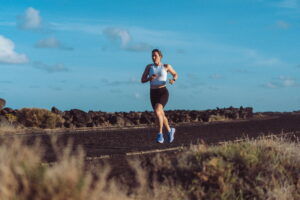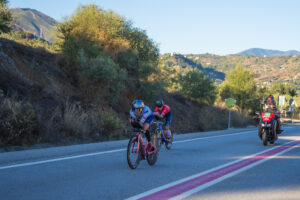Macca speaks volumes

Chris McCormack swims, bikes, runs… and writes for a living. In his first ST interview since becoming an ink slinger, it's a reflective Macca on writing, on his home country, his reputation for outspokenness, and, on training.
SLOWTWITCH: Not since the 1980s have the world's best long distance triathletes eschewed the Hawaiian Ironman in favor of alternative long distance events. Back then the Kona race offered zero prize money, providing the motivation for athletes to avoid Kona. That's not the case today. Nevertheless you champion events like TriStar and Challenge. Still, you are not antagonistic to Kona. This year you were the emcee for Specialized, and seemed quite comfortable in that role. Take as long as you want, and just tell us what motivates your choice of races—and I know it's not entirely about money, because many of not most of your races this past year did not pay you to appear.
CHRIS MCCORMACK: As a professional athlete, sure, money is a massive piece of the puzzle when it comes to selecting events to do in a year. But if this is the primary thing that drives athletes' decisions in racing, then I think they ultimately end up disillusioned and flat.
This entire triathlon world is completely different to the one that I started in almost 24 years ago. Back in the day, you had probably twelve marquee races around the globe that gave athletes an ability to shine and a platform to launch their careers. Sure you had lots of smaller events that supported these races, but the major races like Hawaii, Zofingen, Nice, Wildflower, Chicago, and so forth, could really set an athlete up for a season.
Now their are so many events it is very difficult for athletes to jump out from the crowd and become known. For the duration of my career, I always gravitated to the races that my idols did. It was not about what banner they represented, but more so the history that these races had, and what those races meant to me. I was in every way a young kid who grew up obsessed with triathlon. And it was this young kid who came to the USA and began racing on the professional circuit, with no idea except that I knew a handful of events that were held around the world, and my sporting idols won them, so that's exactly what I was going to do.
Well, since then the sport has been tugged and pulled and it's morphed and grown and now we have thousands of events and all have meaning for people in different ways. Speaking as a guy who has been in this sport for three decades, we have a much bigger sport nowadays, yet I feel we have lost something of its soul, or it's meaning. Its history is more than just the Ironwar, and always has been to me. I have gone on to win every race I ever wanted to win as a kid. All I ever wanted to do was know what it felt like to run into the stadium in Roth—the first Ironman ever to be held in Europe—and put my hands up in the air. I didn't care if it had an Ironman logo on the event or not. For me it was about the race and its history. I wanted to run down Alii Drive to the finish line in Kona, not to define me or have Mike Reilly call me in as an Ironman—that is pretty cool though—but for the simple fact that I watched Mark Allen, Julie Moss, Mike Pigg, Ken Glah, Greg Welch, Dave Scott, Scott Tinley et al, do it, and these were my superheroes as a kid. I wanted to feel what they felt. I was motivated by the guys who came before me, and it is this very fact that always mapped where and what events I raced in.
Picking races now is about being involved with people I enjoy working with, doing races I think are cool and motivating, and really hanging onto those events that give me the closest feel to what the sport meant to me when I first started it.
I wish I was more articulate or could write better, but I hope that makes sense. I think the sport is wonderful today, but it is different. It is very different. Is it different because I am older and not that young kid anymore? Who knows? But to me, it was that old-school feel of the sport, the hardness and the competitive drive of those athletes who inspired me, and the way they attacked this sport that brought me here, and when I am picking races around the world, I am always looking for those style of events that give me that same feel.
This sport is amazing. We have so many races around the world that we can do, that challenge us. I don't need to be told that something is or isn't worthy because it doesn't hold a certain symbol in front of its name. I am old school. I like the race, the challenge, the destination, the people and the after-party. These are the key ingredients to any race I pick to compete in! From the old magazine stories I read as a kid, I think this influenced a lot of the guys' choice of racing back then as well. I am looking to challenge myself. That simple fact has never changed and you can get this in races of one hour all the way up to eight hours.

SLOWTWITCH: You're going to race at Challenge Cairns this year, as you did last year if I'm not mistaken. This is a fascinating place, to me, because Cairns does not fit the typical idea of Australia, at least for North Americans. I mean, it's closer to New Guinea and the South Pacific Islands than to Brisbane. It's real Crocodile Dundee stuff. But you're an Aussie and I wonder if Aussies are inured to it? Or is Cairns, the Barrier Reef, the rain forests, the national parks, as wild and fantastic to fellow Aussies as it is North Americans?
CHRIS MCCORMACK: I guess we do take this region of our country for granted, because we grow up with visions of this all over our TV screens encouraging us to head north to holiday and enjoy this magnificent country of ours. But let me tell you, pictures, video and even stories do not do this part of the world justice. It is simply breathtakingly beautiful. Unspoiled, pristine wilderness which is both beautiful and wild. This means crocodiles and snakes and all those things that bite, but that makes it so real and cool and genuinely perfect.
When my wife and I were married we could have gone anywhere on earth for our honeymoon. I had raced in Cairns many times, because Brad Bevan [a hero to Australian triathletes] grew up in this area, and the region held a massive triathlon up this way in honor of him in the 90's. I came up every year to race the event. I fell in love with the place and was blown away by how incredibly beautiful it was. Sure I had seen the postcards and the TV shows, but it just does not do it justice. Emma came up for a weekend once to watch me race, and we decided then and their we had to spend more time up this way one day.
Emma and I had our honeymoon here and chilled out, enjoyed the reef, the white—I mean white—sand beaches, the clear volcanic lakes, the unspoiled rainforests and the sheer fact that the human footprint has not destroyed this part of the world like it has most other places. We were able to spend some quality time up this way and just fell in love with the place. It really is amazing, and as an Aussie when you go to places like far north Queensland you really appreciate how lucky we are to be a country of our size and have the sheer lack of people, so it remains the way it does. It doesn't get any more raw than this place for this very reason.

SLOWTWITCH: We're into our Challenge Cairns challenge on Slowtwitch. These challenges are a way we all virtually train together, while leading our own lives in our own locales. This challenge will span a period of time starting seven months out from the actual race in Cairns, ending five months out. This is, then, a time of base and maintenance training. We're focusing on just getting training sessions in, and we've got as a target 36 training sessions a month. Can you tell us what it is you'll be focusing on in training, in broad strokes, between now and the end of the year?
CHRIS MCCORMACK: I think the key for now going into the end of the year for those building towards Cairns would be prime maintenance work. Building up a level of fitness that will enable you to put in the heavy work to be done in your aerobic block of work, and laying down some strength and power work. I would have a fairly broad maintenance program for my VO2 work and fitness work. Set myself some soft mileage goals across swim, bike and run and keep the consistency in these across a period of time.
I would be working heavily on a gym program maybe 3 times a week, that would be strength and power orientated and have 4 key sessions per week locked in that were specific to my particular weaknesses. These 2 months until the new year starts can be difficult for training because of so many holidays and festivities that come with this time of year. I say enjoy these to some degree, but just keep a consistent, enjoyable training routine that is not overly structured—which can lead to burnout late into an Ironman program when it is important—but is consistent enough to keep you ready to ramp up into some solid growth and structure come the new year.

SLOWTWITCH: Is there a specific goal you have in mind over the winter? Improving your swim speed, your bicycle hill climbing, your short course footspeed on the run, changes in your body composition, or something more ethereal, like increasing your sense of enjoyment during your workouts as you move forward?
CHRIS MCCORMACK: Nowadays as professionals our Winter blocks have become less and less with the new rules and global racing calender. As Aussies we are used to this and always raced back-to-back seasons, but definitely as I ramped up the distances of the races I was competing in, I found the need for more base phase and the old "Winter" preparation style of work, that I ever did before.
My specific goals during the Winter—funnily enough this is summer in Australia and usually is from between October until January 1 for me—I work predominantly on strength and power and recently added weights to the equation. I am looking at putting my body in a place to make it ready to absorb the season coming, yet give it enough of a break from the mundane—if you can call it that—or the sheer routines of triathlon-specific training.
We really try to incorporate some different fitness work to keep the fitness in place. I do a lot of boxing, but I still keep a base level of mileage across the 3 disciplines of triathlon. We just have less focus on set mileage if this makes sense. We will have 4 key sessions in the week that address any weaknesses we felt we had during the year. For me, recently, this has been a lack of core strength and a definite loss in real power, especially on the bike. My strength is good and my 15-minute power numbers are good, but my 5-minute peak power is right down. I touch on sessions during the week to nail this.
I am also working on biomechanics and posture during this part of the year—running on a treadmill for leg turnover and doing specific sets to help me with this. The focus on the Winter break is to give your mind that break, keep the workloads challenging but interesting and different, and continue to fix those things that have given you issues during the season, without worrying about meeting set mileage goals.

SLOWTWITCH: You wrote a book, "I'm Here to Win." As a fellow writer, I think I can say with confidence that writing that book changed you. I don't know how, or in what way, but, nobody can spend that amount of time being that self-reflective and not come out of that process with a different approach to your work than you had before you went into it. Your book taught us things about you we didn't know. What did it teach you, about you, that you didn't know?
CHRIS MCCORMACK: Mate, you absolutely nailed it. I have actually tried to tell some of my mates that but you are absolutely right. In the case of my book we were bombarded with requests from publishers in New York for quite some time, but I had absolutely no idea what it takes to write a book, or if I even had a story to tell. I think outside the triathlon world, when people would talk about triathlon my name would pop up because I have always been this very outspoken guy. I never ever saw it as outspoken to be honest. I was always just a guy who stood up for what he believed in, or what he wanted. I was that guy when I was twelve and am still that guy.
I guess somewhere along the way, you start winning races, and people put a microphone in front of you and film what you're saying, and even though it is the same things you were saying when you were a kid, it was now seen as outspoken or cocky. Over time, though, even though I was criticized for it—I seriously could never understand why—it became my biggest marketing tool, simply because it was real and it was remembered, and it was this very fact that brought my story to the light of many of the publishers. "Who was this Australian guy, who says all these things but actually wins these races?"
When we sat down with these publishers it was a strange experience, because I was, like, "What story do you want? I won all these races, but lots of people have won races." They were intrigued by how I went about winning these races and my mindset behind why I had said the things I had said, and what motivated me.
To be honest, I had never even given any of this stuff any consideration. As an athlete I think you just move from one goal to the next after you achieve. You are always looking forward, and your never look back and reflect. The entire process of sitting down with people, and them drilling you for hours and hours over a long period of time was like therapy, to some degree. I was continually asked "Why?" and what made me think that, and when I reflected like that I was amazed at what I found out about myself.
I honestly never saw myself as a guy who talked smack, because I never saw what I was saying as anything but real competitive talk. My entire mindset was pretty simple. Identify race, set program, prepare, and win. When you only highlight things and keep them that simple in your head all the rest is just rubble. When you are asked questions like, "Do you think you can win this race?" The answer is pretty simple, "Of course, what am I here for?"
I was able to take a lot out of the entire book writing experience on a personal level. Probably much more than the book actually presented. Obviously, timelines and things get cut and changed in the final product, but I am very happy with the book and it was very successful. I think more than anything I was able to understand what it truly is that makes me tick, where I am strong, and the simple fact that I am very analytical without meaning to be. I am strong in my ability to selfishly focus on goals and achieve them despite all the chaos and non-believers around. It is a real strength of mine. I was able to understand a lot more of how I go about things and why. I think more than anything about the entire experience I came out with a better grasp of how I can take what I have learned, and show others how to do that. I took a lot from the entire experience.
SLOWTWITCH: Would you mind popping in a couple of times, during the next two months, to take a look at the totals achieved by those partaking in our challenge? We'll have a sticky thread on the top of our forum, maybe you can write in give our participants a tip from time to time.
CHRIS MCCORMACK: Sure, I would be happy to give the participants a tip from time to time. That is too easy. Never an issue mate. Always fun chatting away with you guys. Love Slowtwitch.







Start the discussion at forum.slowtwitch.com